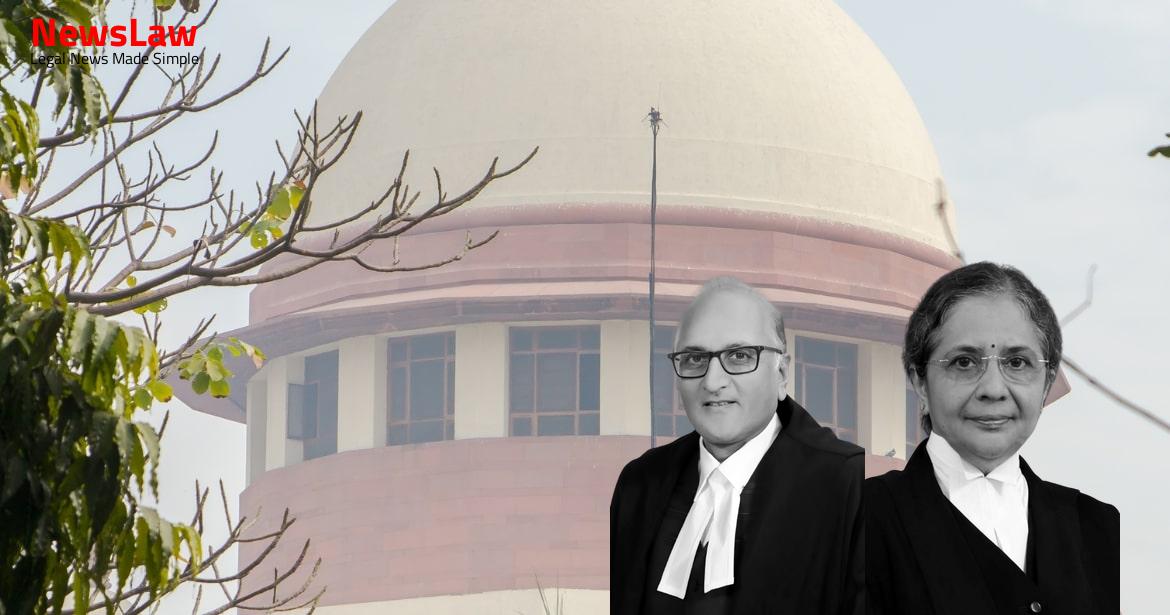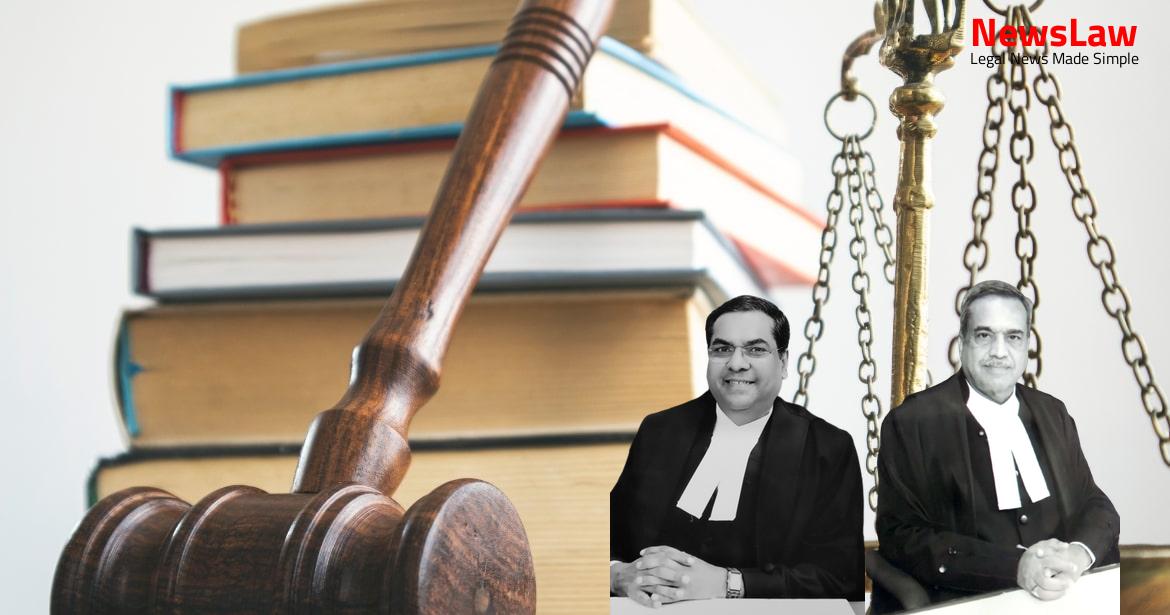Explore the critical examination of operational creditor applications under the IBC, focusing on the court’s emphasis on determining the existence of genuine disputes before admitting such applications. The court underscores the significance of adhering to specific criteria and conditions outlined in the law, ensuring that insolvency proceedings are initiated only in clear cases without real disputes. Dive into the legal intricacies and nuances of initiating Corporate Insolvency Resolution Process under the IBC for operational creditors.
Facts
- The NCLAT allowed the Company Appeal filed by Hindustan Petroleum Corporation Limited (HPCL).
- The NCLAT set aside the order passed by the NCLT, Kolkata, admitting the application filed by the appellant under Section 9 of the IBC.
- The application was for the initiation of the Corporate Insolvency Resolution Process against HPCL Biofuels Ltd. (HBL).
- HBL is a wholly owned subsidiary of HPCL.
- The NCLAT directed
- The appellant sent a legal notice to HBL demanding payment or arbitration.
- HBL contended that the appellant failed to honor commitments and had to procure materials from other vendors.
- There were disputes on alleged outstanding payments between the parties.
- HBL claimed an amount due from the appellant excluding consequential losses.
- The appellant raised invoices for the purchase orders.
- HBL sent a debit note for the consumption of spares and consumables.
- The appellant filed an application for CIRP against HBL under IBC Section 9.
- HBL issued C-forms to the appellant between certain dates.
- There were pre-existing disputes, and requests for arbitration were made.
- Sections 8 and 9 of the IBC regarding insolvency resolution by operational creditors were mentioned.
- The Adjudicating Authority admitted the application for CIRP filed by the appellant.
- Various tenders were floated by HBL for enhancing capacities, leading to disputes.
- HBL claimed poor quality of work and breach of terms by the appellant.
- Correspondence and legal notices were exchanged between the parties.
Also Read: Analysis of Financial Statements as Acknowledgment in Limitation Act Case
Arguments
- The respondent has strenuously contended that the issuance of further work orders and the Notice invoking Arbitration by the Operational Creditor does not amount to Existence of a Dispute.
- The respondent argues against the notion that the said actions imply the existence of a dispute between the parties.
- They have put forward their perspective that the work orders and the arbitration notice are not indicative of a dispute as claimed by the creditor.
Also Read: Interpretation of Corporate Guarantor under IBC
Analysis
- Adjudicating authority must examine if there is an operational debt exceeding Rs 1 lakh as per Section 4 of the Act
- Verify if the documentary evidence shows the debt is due and payable
- Check for the existence of a dispute between parties or pending suit/arbitration proceeding
- If any condition is lacking, the application should be rejected
- Application under sub-section (2) should be complete and filed in the prescribed form
- Operational creditor initiating insolvency process may propose a resolution professional
- Application must be accompanied by invoice, affidavit stating no dispute from debtor, and other supporting documents
- Adjudicating authority to admit or reject the application within fourteen days
- The court emphasized the importance of determining the existence of a genuine dispute before admitting an application under Section 9 of the IBC.
- The court highlighted that the Adjudicating Authority should not delve into detailed examination of contentions or adjudicate the merits of the dispute at the admission stage.
- It was reiterated that the pre-existing dispute between the parties was a crucial factor to consider before admitting an operational creditor’s application.
- Various correspondences and communications between the parties were evaluated to ascertain the existence of a real dispute.
- The court stressed that the amount of the disputed claim considered due and payable should exceed Rs. One lakh for the application to be accepted.
- Detailed analysis of claims, provisional statements, and contractual breaches were key factors in determining the existence of a valid dispute between the Operational Creditor and the Corporate Debtor.
- Adjudicating authorities were instructed to adhere strictly to the conditions outlined in Section 9(5) of the Act when evaluating applications under the IBC.
- The court underscored the need for fulfilling specific criteria, including no payment of the debt, absence of a genuine dispute, and completeness of the application, for the application to be admitted.
- The case is being examined in light of the law laid down by the Hon’ble Supreme Court.
- The amount in question may not be finally payable as adjudication proceedings are still pending.
- The case falls under para 38 of Mobilox Innovations which deals with pre-existing ongoing disputes between parties.
- The Code should not be used to extract money in cases where a real dispute exists between the parties.
- The object of the Code, especially concerning operational creditors, is to initiate insolvency proceedings only in clear cases where no real dispute regarding the debt exists.
- Initiation of CIRP by an Operational Creditor must be based on undisputed debt and default in payment
- CIRP should not be used to penalize solvent companies for non-payment of disputed dues
- Differences exist in the IBC procedure for initiation of CIRP by financial creditor and operational creditor
- Sections 8 and 9 of the IBC highlight the requirements for an operational creditor to trigger CIRP
- Operational Creditor can initiate CIRP only if there is an undisputed debt and default in payment
Also Read: Quashing of FIR and Charge-sheet: Legal Analysis
Decision
- Pending applications stand disposed of accordingly.
- No grounds found to interfere with the judgment and order of the NCLAT.
- The appeal is dismissed.
Case Title: M/S S.S. ENGINEERS Vs. HINDUSTAN PETROLEUM CORPORATION LTD. (2022 INSC 1309)
Case Number: C.A. No.-004583 / 2022



